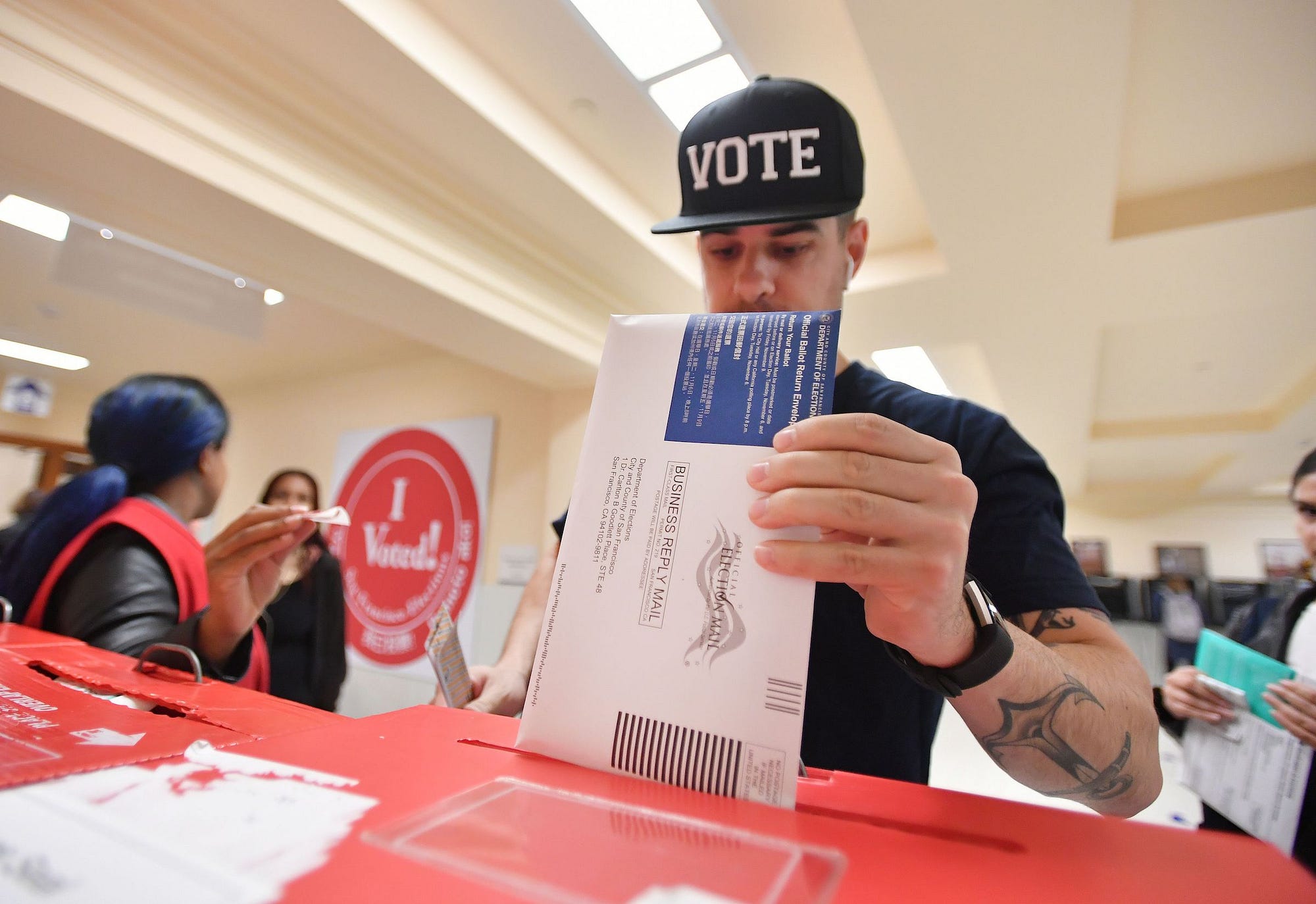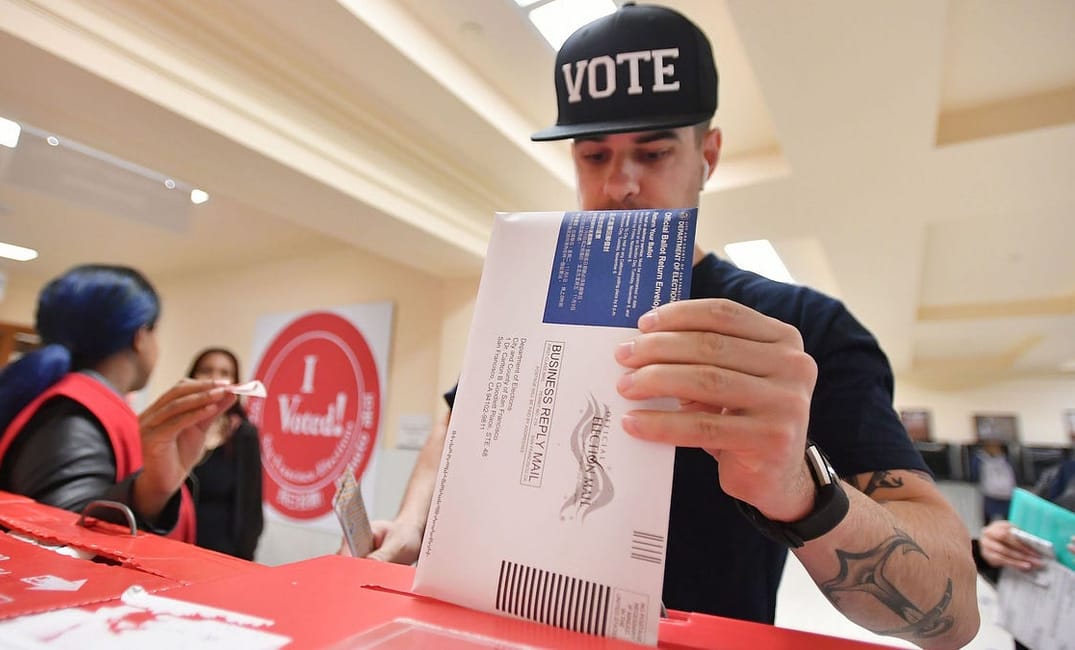
This election season, the most hotly contested race in San Francisco is for district attorney. Whether they’re billed as “top cops” or reformers of a broken criminal-justice system, DAs wield a great deal of influence. In a city the size of San Francisco, the district attorney is a powerful voice with the ability to determine the direction of the city’s prosecutions as well as policies around rehabilitation, restorative justice, juvenile justice, and other critical issues.
The race this year is particularly high profile. It’s the first DA race in more than 100 years without an incumbent.
San Francisco’s new DA will have a great deal to grapple with. The city now leads the country for property crime rates; car break-ins are a particular problem, as residents and visitors can attest. There are an average of 51 car break-ins every day in SF. Besides petty theft, San Francisco is dealing with the realities of a homelessness epidemic and a substance-abuse crisis that is entrenched — and getting worse.
While these are not new problems — San Francisco has wrestled with these issues for years — pressure on the city to deal with them in both an equitable and effective way is intensifying. Residents also want the DA to tackle sexual violence and police brutality head on. It’s a tall order, but the candidates in this year’s race are all promising that they can meet the challenge, but with vastly different approaches.
The race this year is particularly high profile. It’s the first DA race in more than 100 years without an incumbent. George Gascon, who had served as DA since 2011, resigned on October 18 to run for Los Angeles DA. But following Gascon’s resignation, mayor London Breed made an unusual and roundly criticized move that changed the landscape of the race: she appointed Suzy Loftus as interim district attorney, which the ACLU labeled a “tilting of the scales.”
Like Los Angeles, San Francisco is unusual in its election of the DA at all; in many cities, it’s an appointed position. There are four candidates running in this year’s DA race, each with radical plans to shake up “criminal justice as usual”: Loftus, Chesa Boudin, Leif Dautch, and Nancy Tung.
The appointment positioned Loftus as the designated incumbent, and according to the ACLU, incumbent DA candidates win 95% of the time they run. But this time the mayor’s move may not help Loftus. Although she was a front-runner before her appointment, recent polls show that 40% of voters disagree with the mayor’s decision. At a candidates’ panel on October 30 at Impact Hub SF, Loftus was booed so loudly, the event ended early.
All four candidates, including Loftus, are campaigning on repairing the city’s relationship with the DA’s office.
Naturally, Loftus’ rivals were also upset by the appointment. Boudin called it “a transparent move obviously set up to influence the outcome of the election — [that] has nothing to do with public safety.” Dautch agreed. “I was really disappointed as a candidate,” he said, “but I was even more disappointed for the citizens of San Francisco, who had the chance on a clean slate to elect a district attorney in the first open race in 110 years. That’s been stolen from them.”
All four candidates, including Loftus, are campaigning on repairing the city’s relationship with the DA’s office. After the announcement this summer that San Francisco will be closing its juvenile hall, the city could be on the cusp of significant criminal-justice reform.
Gascon earned himself a reputation as a progressive prosecutor nationally, but at home, he was less than beloved. His track record on prosecuting police for misconduct came under fire from both police groups and progressives; many also decried his lack of action on quality-of-life issues. Several candidates have promised to be tougher on police accountability than Gascon.
On November 5, San Francisco voters have an opportunity to make their voices heard and choose a prosecutor who represents their values — and reshape the city.
“I think there is a role for police accountability,” Leif Dautch said at the Impact Hub SF panel. “George Gascon looked at 26 police-involved shootings and didn’t file a single case.” Boudin echoed the sentiment, saying, “Are you going to hold police accountable when they lie, steal, and kill? The answer to that has to be yes.”
Boudin, whose own parents were members of Weather Underground and incarcerated for much of his childhood, was a public defender himself. He’s running on a campaign of radical criminal-justice reform that includes focusing resources on violent crime, prosecuting police misconduct, and expanding mental-health and diversion programs. “It’s not enough to say we will have race-neutral policies. We need to be anti-racist. Proactively anti-racist,” he said. In an expression of anxiety over Boudin, the San Francisco Police Officers Association has spent more than $400,000 on advertisements against Boudin to date. “Does the DA’s office depend on the police to make change? Yes, if you’re a traditional prosecutor. But I plan on doing my own investigations,” he said.
Dautch’s platform is similar, with plans to open an environmental-justice unit and an eviction-defense unit. He also says that he is highly focused on diverse recruitment of prosecutors. “Twenty-five percent of attorneys have left the DA’s office in the last year, and 75% of those were people of color, women, and LGBT people,” he pointed out. “We need to do better to recruit diverse talent.”
Nancy Tung’s campaign is a more traditional prosecution platform, at least compared to Dautch’s and Boudin’s. “We need to look at the crime in front of us and prosecute in a way that is effective,” she said. Tung—who spent 11 years working in the San Francisco DA office and is currently deputy district attorney of Alameda County—is particularly concerned with substance-abuse issues in the city. “It doesn’t have to be a numbers game, but we really do need to address [the opioid crisis],” she said.
Loftus, who served as president of the Police Commission and legal counsel for San Francisco Sheriff Vicki Hennessy before taking over as interim DA, is campaigning on reducing crime in the city, including the rampant car break-ins and sexual violence. “It is a false choice to say that we must pick between our progressive values and holding people accountable for property and other quality-of-life crimes that make San Franciscans feel unsafe,” her website states.
The district attorney’s office is an incredibly powerful position in terms of shaping the way that criminal justice is understood and practiced. On November 5, San Francisco voters have an opportunity to make their voices heard and choose a prosecutor who represents their values — and reshape the city.







